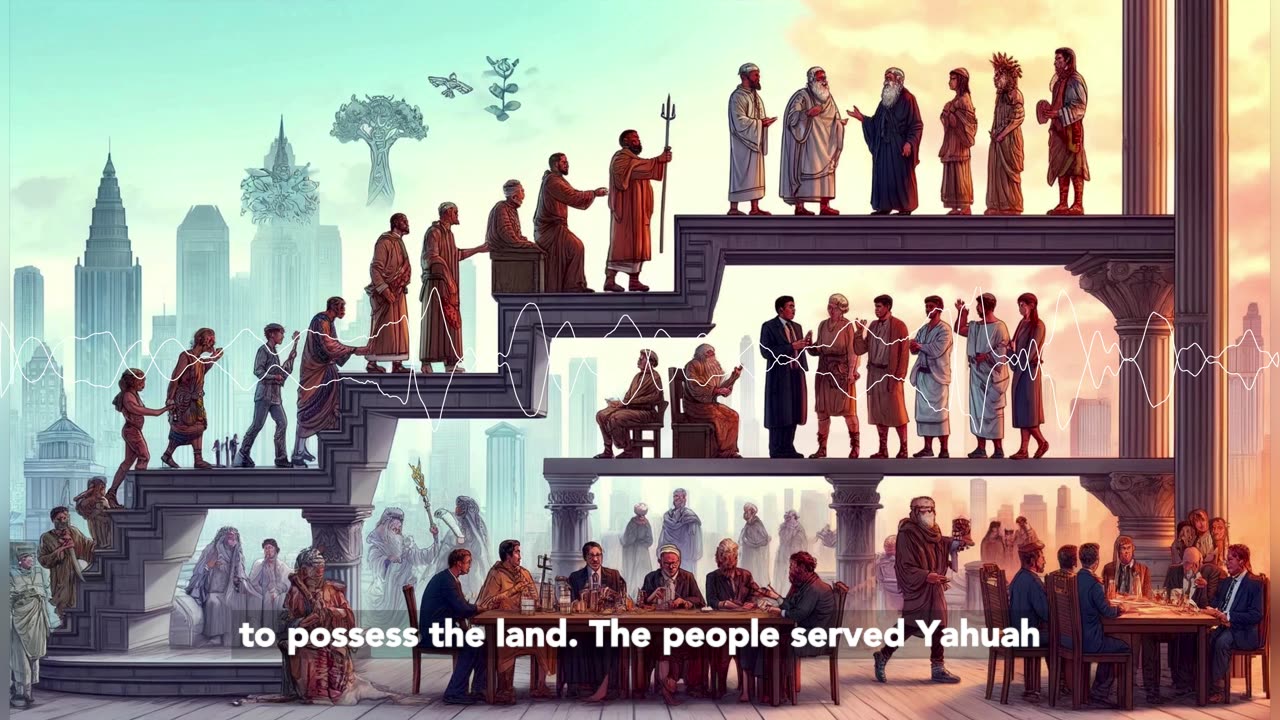Premium Only Content

Jundges 2 Ultimately, the choices of one generation impacts the next
In Judges 2, Yah’s chosen are called out for not driving out the pagan nations from the Promised Land like Yahuah commanded. Instead, they let them stick around with their idolatrous worship sites and altars to false gods. This was a flagrant act of disobedience.The themes of obedience, wisdom in leadership, and accountability for our choices - they're just as relevant today as they were back in the days of the judges. Yahuah's unchanging truth can guide us through any cultural moment.
A few key points:
1. The obelisk is an ancient Egyptian monument, often associated with sun worship and pagan deities like Ra. Some sources link it to the "Benben" stone believed to channel the spirit of Ra/Lucifer.
2. In Daniel 3, Shadrach, Meshach, and Abednego refused to bow down to the golden image/idol set up by King Nebuchadnezzar, likely connected to Babylonian pagan worship practices.
The word "Baal" in Hebrew and other Semitic languages can indeed be translated as "lord" or "master."
1. The Hebrew root word "ba'al" (בעל) means owner, lord, master, possessor or husband depending on the context.
2. When used as a noun, "Baal" referred to the Canaanite fertility god who was considered the "lord" or ruler of the land and its productivity. This false deity was worshipped by pagan nations surrounding ancient Israel.
There are several pagan practices and traditions that have carried over and are still present in modern times, even if their original pagan roots are not widely recognized. Here are some key points:
1. Many popular holidays and celebrations have pagan origins:
* Christmas has roots in pagan winter solstice festivals like Saturnalia.
* Easter incorporates fertility symbols like eggs and rabbits from pagan spring festivals.
* Halloween traces back to the Celtic pagan festival of Samhain.
2. Elements of ancient pagan religions persist in some modern societies:
* Hinduism in India has polytheistic and animistic roots predating Abrahamic religions.
* Shinto in Japan is an ancient animistic pagan tradition still widely practiced today.
* Some indigenous religions in Africa, the Americas, East Asia, etc. maintain pre-Christian pagan worldviews.
3. Everyday traditions have pagan folkloric connections:
* Knocking on wood, obsession with cats, and other superstitions derive from pagan beliefs.
* The names of days of the week and months of the year come from pagan gods/planets.
-
 29:48
29:48
The White House
3 hours agoPresident Trump and The First Lady Participate in the Thanksgiving Turkey Pardoning
24.3K15 -
 1:58:04
1:58:04
The Charlie Kirk Show
2 hours agoMark Kelly Court Martial + AI Embargo + Thanksgiving | Davis, Federer, Newcombe | 11.25.2025
56.5K17 -
 53:20
53:20
The Rubin Report
4 hours agoLara Trump Destroys Bill Maher’s Narrative w/ Facts in 1 Minute
40.9K41 -
 56:32
56:32
TheAlecLaceShow
2 hours agoGuest: Rep. Tim Burchett | Ukraine Russia Peace Deal | Trump SLAMS Seditious 6 | The Alec Lace Show
12.8K -
 LIVE
LIVE
LFA TV
16 hours agoLIVE & BREAKING NEWS! | TUESDAY 11/25/25
2,188 watching -
 1:08:44
1:08:44
VINCE
6 hours agoThe Deep State Strikes Back! (Guest Host Shawn Farash) | Episode 176 - 11/25/25 VINCE
225K146 -
 2:14:00
2:14:00
Benny Johnson
4 hours agoIt's All True, The 2024 Election Was Ready To Be Rigged. The REAL Story of How Trump-Elon STOPPED It
75.5K91 -
 1:46:09
1:46:09
The Mel K Show
3 hours agoMORNINGS WITH MEL K - A Republic.. If You Can Keep It! 11-25-25
30.5K8 -
 1:46:25
1:46:25
The Shannon Joy Show
3 hours agoDOGE Is DEAD * Trump’s Golden Economy Implodes * LIVE Exclusive With Galileyo CEO Brett Miller
16K7 -
 52:12
52:12
Grant Stinchfield
20 hours ago $1.10 earnedFree Speech DEAD in Britain: Islamic Migrant Chaos Sparks Police Crackdown on the Law Abiding!
11.2K8